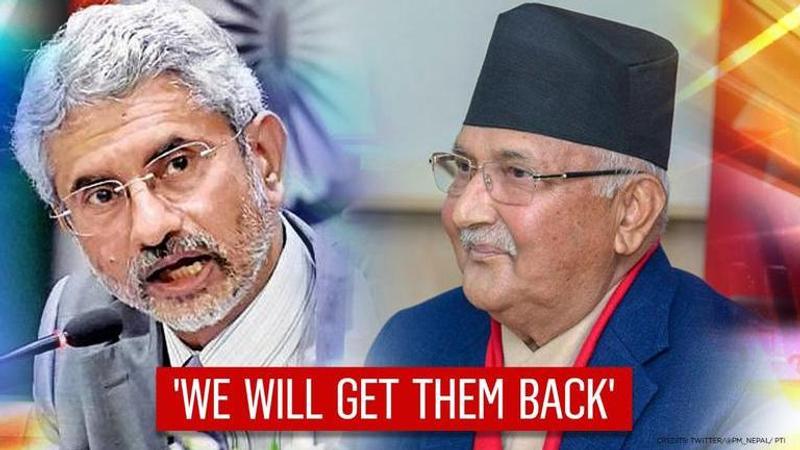Published 09:51 IST, January 11th 2021
Embattled & cornered, Nepal PM KP Oli sending Foreign min to 'reclaim' Indian territories
Ahead of his foreign minister's visit to India, Nepal PM Oli said that he will get back the territories of Kalapani, Limpiyadhura & Lipulekh from New Delhi.

Days ahead of Nepal Foreign Minister Pradeep Kumar Gyawali's visit to India, PM KP Sharma Oli said on Sunday that he will get back the territories of Kalapani, Limpiyadhura and Lipulekh from New Delhi. Nepal's Foreign Minister will visit India on January 14, in a bid to restore normalcy in bilateral relations that soured over a bitter border row.
'We will get them back...'
"Kalapani, Limpiyadhura and Lipulekh which are located east of the Mahakali River belong to Nepal as per the Sugauli Treaty. We will get them back through diplomatic talks with India, Oli said.
"Our Foreign Minister will visit India on January 14 during which his discussion will be centred on the issue of the map that we have published with the inclusion of the three territories," said Oli, who had triggered the border row last year after his government came out with a new political map that showed Indian territories as part of Nepal.
Oli also said that his government has made sincere efforts to strengthen bilateral ties with both India and China. "I, in a real sense want friendship with India and take it forward for a stronger bond in the coming days. I want that friendship to flourish, take it to a new height, which never would be on basis of inequalities. It would rather be based on sovereignty and equality, on the basis of which the relation between the two countries would develop and expand further. That friendship also would spring from deep within the heart," ANI quoted Oli as saying.
India-Nepal bilateral ties
The Prime Minister also said that recent high-level visits from India and China were goodwill ones. "They came here to convey their good wishes. There is nothing to worry much about that," he was quoted as saying by My Republica newspaper.
After Nepal released the map last year, India reacted sharply, calling it a "unilateral act" and cautioning Kathmandu that such "artificial enlargement" of territorial claims will not be acceptable to it. India said that Nepal's action violated an understanding reached between the two countries to resolve the boundary issues through talks.
The bilateral exchanges that had stalled due to the bitter boundary dispute were reset in the later part of 2020 with a series of high-level visits, as New Delhi emphasised that it sees itself as the Himalayan nation's "foremost friend" and development partner.
Foreign Secretary Harsh Vardhan Shringla's maiden visit to Nepal in November was largely aimed at resetting bilateral ties. Shringla met Prime Minister Oli and other top political brass and emphasised that India and Nepal are on the same page and share the same vision.
Meanwhile, Oli also defended his decision to dissolve parliament, saying "I was forced to dissolve the House of the Representatives as some people in my party did not allow the government to perform well."
President Bidya Devi Bhandari dissolved Parliament in December on the recommendation of Prime Minister Oli and announced the mid-term general election in April-May, a decision termed unconstitutional, impulsive and autocratic by the Opposition and dissidents in the ruling Nepal Communist Party. Oli had earlier claimed that efforts were being made to oust him after his government redrew the country's political map by incorporating three strategically key Indian territories.
(With agency inputs)
Updated 09:52 IST, January 11th 2021




